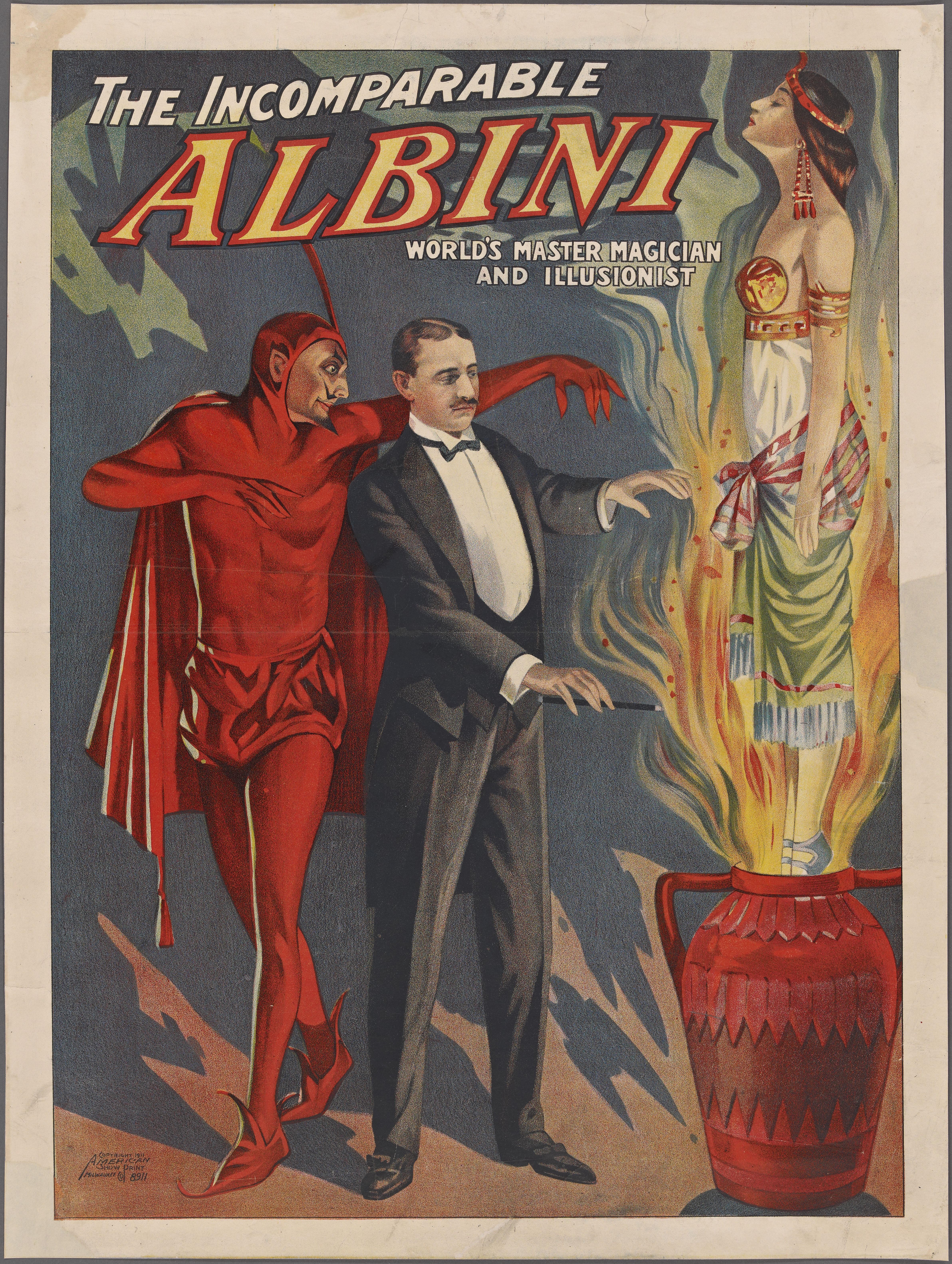Incomparable

Billy Rose Theatre Division,
The New York Public Library. (1911).
The Incomparable Albini Retrieved from
https://digitalcollections.nypl.org/items/b5cfbf49-a59f-7548-e040-e00a18060aef
"What if we've already arrived …?"
One of the more innocent human tricks involves comparing ourselves with others. A practitioner might select from an infinite number of attributes to compare, most of them utterly subjective. From the wicked witch's question—Who's the fairest one of all?—to questions of relative intelligence, each might represent Fundamentally Unanswerable Questions, FUQs. They might be responded to in an equally infinite number of ways, any of which might produce reassurance or devastation, depending on the situation. One rarely slows down to consider if these questions might be worth asking. What would you have if you truly were the fairest one of all? Fairness seems a fleeting attribute and rather superficial. Such assessments, especially when self-assessments, seem questionable. Other than a temporary boost to self-esteem, the question might not be worth asking under The Don't Ask Questions You Don't Really Want The Answer To Rule.
Let's say we're all the fairest in the land. If this notion seems untenable, consider the alternatives. If we each believed ourselves to be the fairest in the land, how could we maintain very much jealousy? If none of us were aspiring to win a zero-sum competition, how much more enjoyable might this existence be, with plenty available for everybody? It could also be possible for everybody to simultaneously be the fairest in the land, especially if everybody employed their own personal and unique definition of "fairest." Again, I dare suggest that there are a nearly infinite number of attributes that might be used to determine "fairest." You have yours, and I have mine, and we can both inhabit first place together.
The real issue here might be competition, as in the need for and the desire to win. Competition is an illness, outside of organized sports, and the need to compete is more a compulsion than evidence of wellness. The urge to beat another, if not with a club but in competition, might be remnants of an earlier iteration of humanness with little relevance in our more modern age. Those who believe our society should be based upon competition tend to be the winners. The losers, who suffered the losses the winners raked in, carry a distinctly different opinion. The losers wonder how we're better off if some of us are worse off as a direct result of what the winners insist remains our defining strength. Cooperation, though, might be reserved for socialists, communists, and others who focus on equity and inclusion, both freshly-minted evil concepts, according to the social conservatives, who seem awfully antisocial to me.
I'm toying with the concept of Incomparable. Couldn't we each be plenty GoodNuff if we refrained from comparing? What am I looking for when I compare myself with others? Reassurance? Devastation? Could it be permissible for me to be here uncompared and competent without the remnants of some competition hanging off my carcass? Could I be the very best without taking anybody else into my accounting? GoodNuff inspires me to imagine the sort of equality alien to me, perhaps unfamiliar to everybody. It encourages my self-esteem without demanding that I revile any other. I might get my jollies from something different than considering myself to be better than anybody else. I could be okay, and you could be okay, too, just as we both already are, not needing restoration or recovery. What if we've already arrived but hadn't noticed until now?
©2023 by David A. Schmaltz - all rights reserved


